UCT recycles in colours
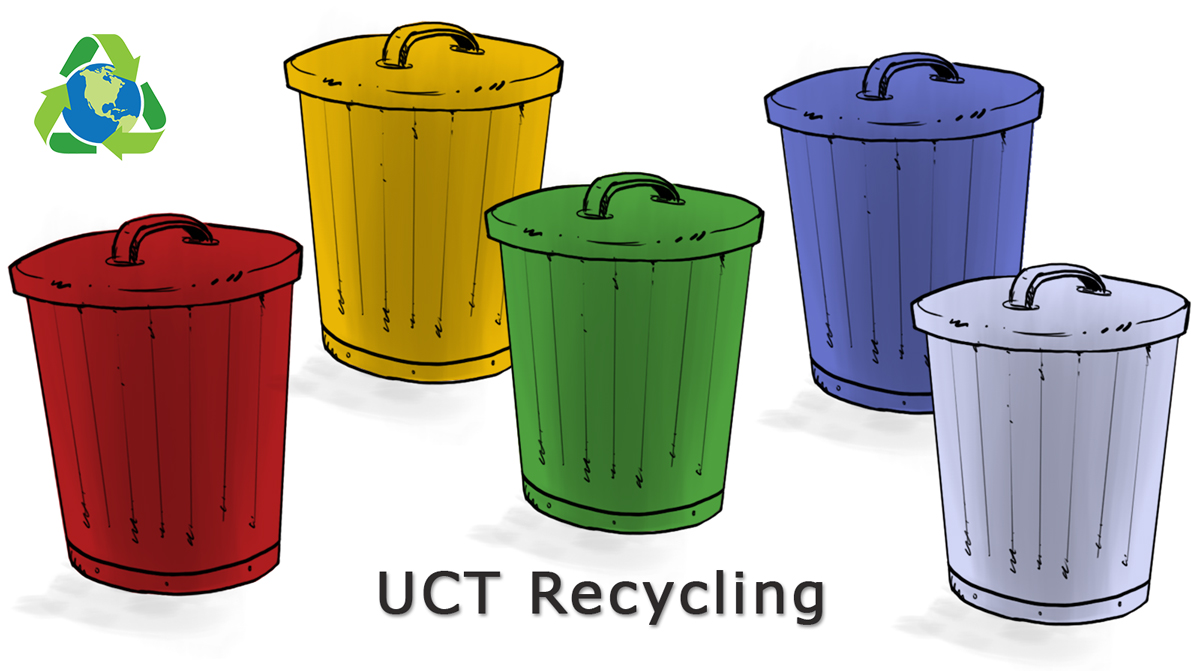
UCT residences use a unique colour coded system for routing waste to special recycling plants off campus. Manager: Student Housing Glenn von Zeil explained the system to us.
Developed 10 years ago
Dealing with waste in residences is a daily challenge and part of providing an efficient, sustainable and clean accommodation service to students and visitors. The colour-coded bin system was developed some 10 years ago and has been running smoothly despite limited budget for promoting and signposting it. UCT’s Properties and Services department contracts with a waste control company to transport the colour coded waste to landfill or recycling plants.
The colour system
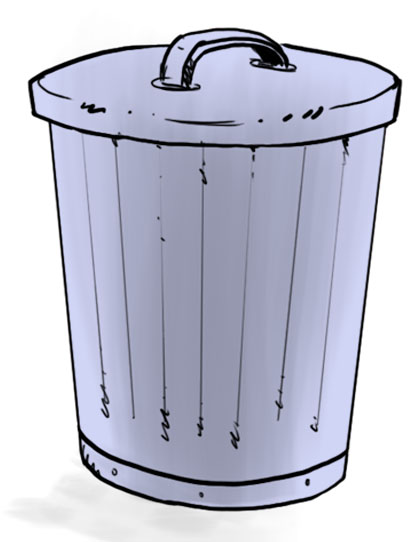
term time and sent for recycling in batches. End of term sees bins filling fast when students empty
their desks before the holidays.
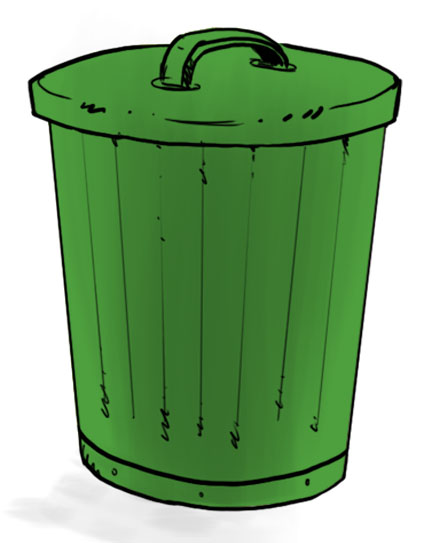
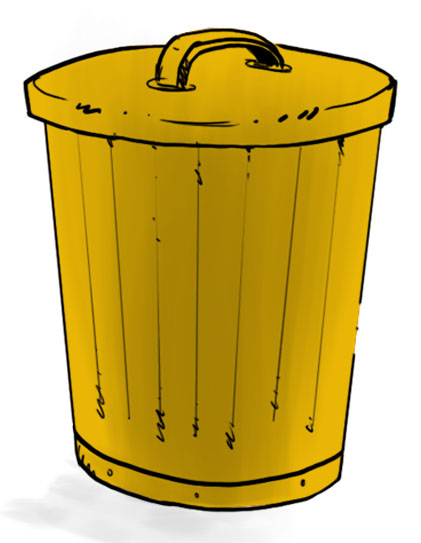
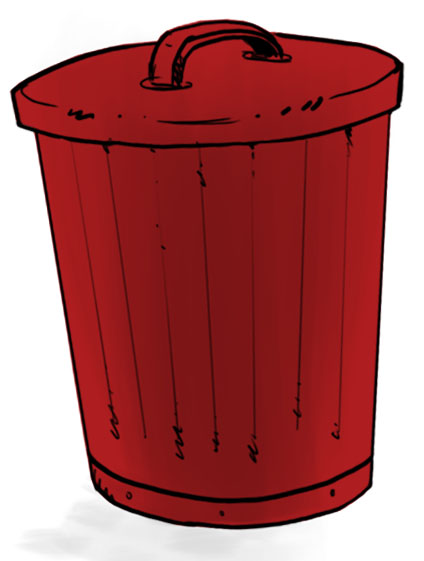
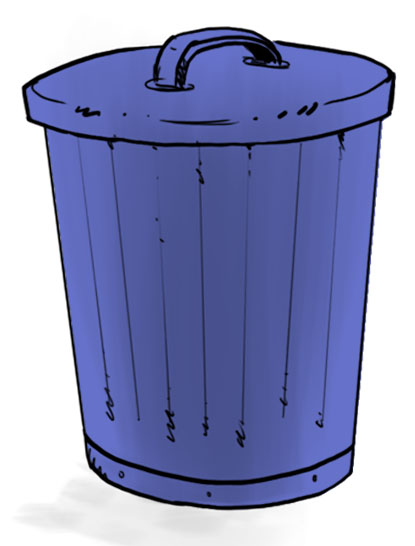
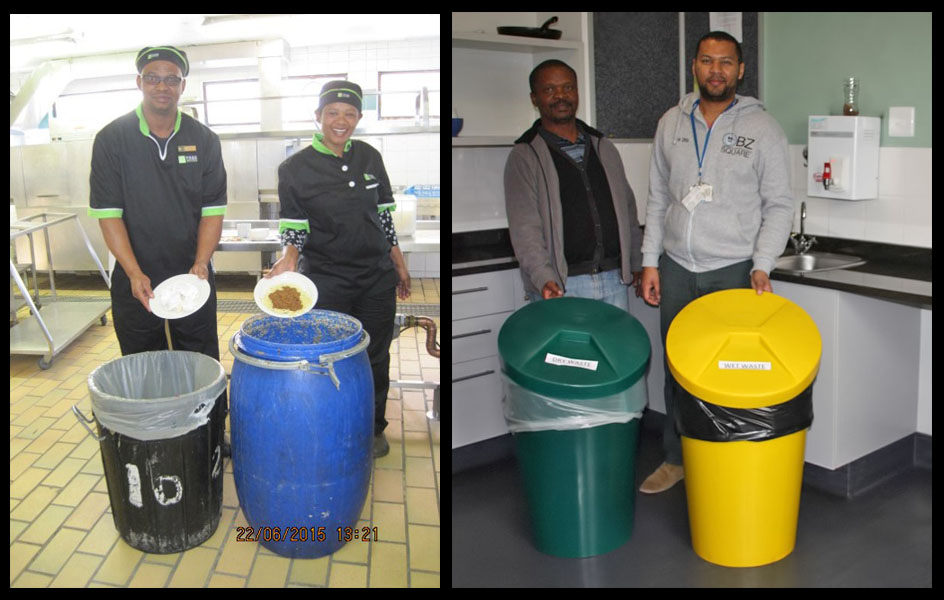
UCT Residence staff demonstrate colour-coded bins in catering res kitchens and self-catering flats.
Photos: Glenn von Zeil
Particular challenges
As residence students are a constantly changing community, new arrivals must be educated about UCT’s recycling routes. A particular challenge is the self-catering residences where recycling cannot be closely monitored and depends on the efforts of individuals.
‘Sustainability and waste disposal requires consciousness and teamwork,’ says Manager: Student Housing, Glenn von Zeil. ‘Unfortunately there is no national colour coded standard with each school and community having their own colour coded system. This impacts on active participation and compliance,’ he says. Glenn wonders whether active participation and compliance would increase if the UCT colour-coded waste recycling system were to be accepted nationally.
Working together
Each year, Green Campus Initiative and Student Housing & Residence Life teams aim to increase awareness about recycling on campus and utilise Green Week as a focal point.
If you’d like to discuss any aspect of recycling in residences, please contact Manager: Student Housing Glenn von Zeil on 021 650 1039 or glenn.vonzeill@uct.ac.za.
Illustrations: Studio Woo